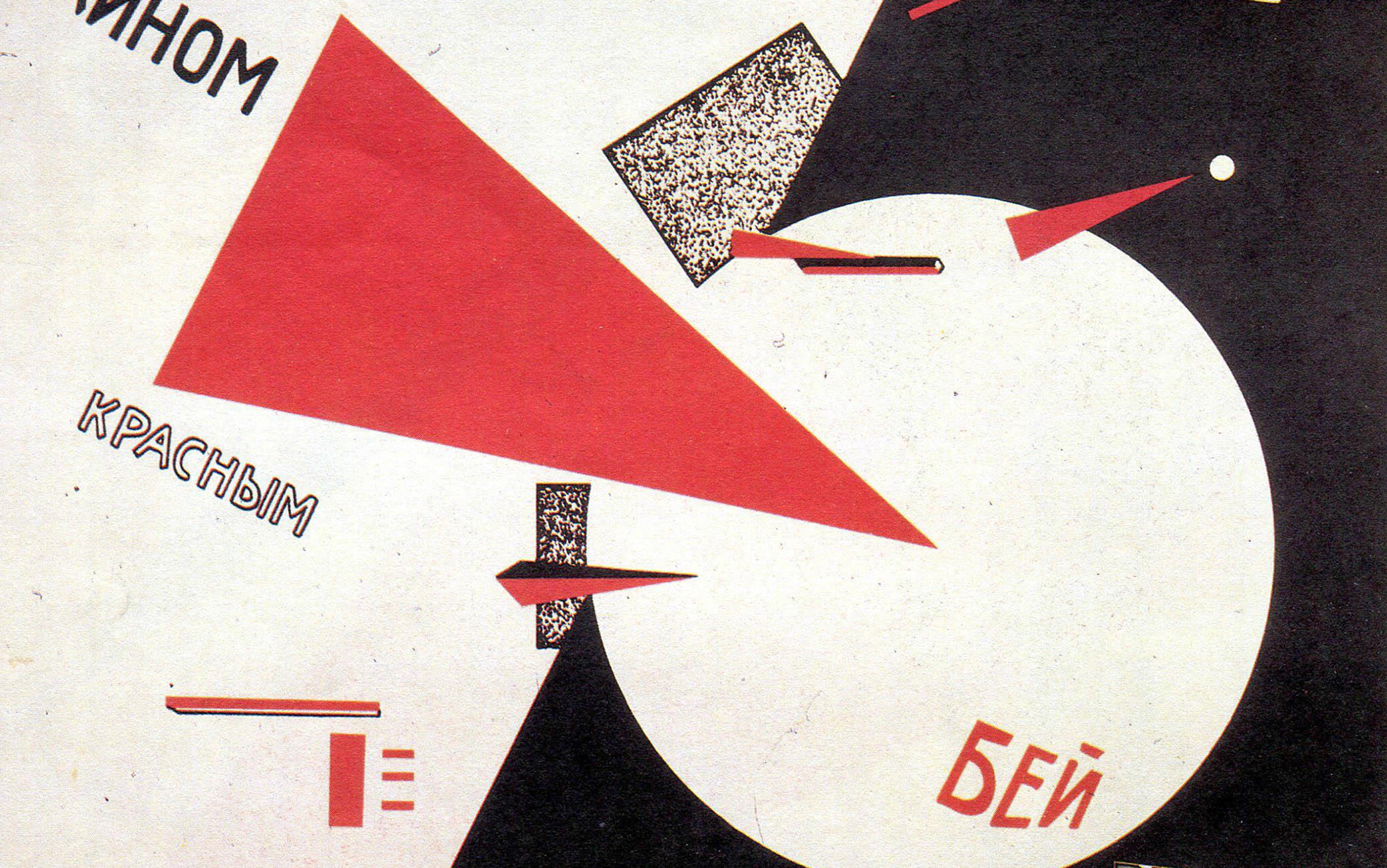Russia’s war on Ukraine has left many thousands dead and millions displaced, and the threat of nuclear war has only exacerbated fear. Climate change is already wreaking havoc on ecosystems and communities, and it threatens to inflict more substantial devastation if urgent action is not taken. Racial, ethnic and gender injustices continue to afflict marginalised populations, while gun-related deaths in the United States are reaching record levels.
If this were not enough, these challenges are unfolding against a backdrop of deep social division, political polarisation and economic uncertainty after a global pandemic caused almost 7 million deaths and created major mental and physical challenges for millions more. When these global challenges are compounded by personal ones, temptations toward despair can be real and significant.
In the US, polls show that pessimism is widespread. A Gallup survey reports that Americans were ‘largely pessimistic’ entering 2023, while Newsweek magazine suggests that the country has ‘lost its optimism’, noting that a higher percentage of Americans report feeling more pessimistic (42 per cent) than optimistic (27 per cent) about the future of the US than they did in 2019, before the COVID-19 pandemic. A study by Gregory Mitchell and Philip Tetlock published in Clinical Psychological Science in 2022 shows this pessimism is shared across racial, economic and ideological divides. Summarising the findings in The Wall Street Journal this April, Alison Gopnik suggests that ‘pessimism is the one thing Americans can agree on.’
Yet the same study also shows that much of this pessimism seems unjustified. Measuring perceptions of changes on a range of indicators, from poverty and incarceration rates to educational attainment and unauthorised immigration, Mitchell and Tetlock argue that these pessimistic appraisals are skewed. Many Americans wrongly believe that ‘things are getting worse than they really are.’ To reduce the influence of COVID-19, the study focuses on changes from 2000-18 but, as it was conducted in 2021, the experience of the pandemic might still affect its results. Nonetheless, the authors consider a range of other explanations, from memory processing biases to a political rhetoric of decline. They also add another potential factor from the lens of error-management: ‘People may arguably see it as more prudent to make the error of overestimating societal problems than the error of underestimating them.’
These psychological and political explanations may be bolstered by a conceptual one: contemporary discourse tends to assume a binary between optimism and pessimism and force a false choice between them. If these are our only options, pessimism can seem more ‘realistic’ than optimism, which is often blind to difficulties and, in its most extreme forms, demands a form of ‘toxic positivity’ that presumes good things will happen if we simply wish them. When such hopes are dashed, as they often are, pessimism becomes even more attractive. Yet when pessimism becomes the lens through which we see the world, it can generate a despair that is debilitating and dangerous. Despair can cause us to give up on efforts to address pressing problems and can feed into a narrative of decline, which makes things only worse and obscures the actual progress being made. The result is even more despair.
We need some way to break this cycle, to avoid the despair of pessimism without embracing the presumption of optimism. Here is where Augustine of Hippo can help. His virtue of hope offers a way between – and beyond – optimism and pessimism.
Enlisting Augustine as a teacher of hope might seem surprising. An influential African bishop, theologian and philosopher who lived in the Roman Empire at the turn of the 5th century, Augustine is often described as one of the West’s great ‘pessimists’. John Rawls called him one of ‘two dark minds in Western thought’, and countless others – from Hannah Arendt to Martha Nussbaum – have deemed his thought too pessimistic for contemporary politics.
One reason for Augustine’s reputation reflects his vigorous critique of evil and domination. Throughout his writings, Augustine is alert to the ways that pride and excessive self-love can motivate a ‘lust for glory’, which in turn fuels a ‘lust for domination’, a desire to dominate others to prove one’s superiority and sustain one’s power. Ultimately, the lust for domination can itself become dominating, consuming a person’s character, and motivating malicious acts of violence and vice.
His acute analysis of pride, self-interest and injustice punctures the presumption of positive thinking
In his book The City of God, Augustine traces the effects of pride and domination in human life, noting that, even among close family and friends, dishonesty, betrayal and cruelty are all too common. The situation is worse in politics. Augustine asks:
If … there is no security even in the home from the common evils which befall the human race, what of the city? The larger the city, the more is its forum filled with civil lawsuits and criminal trials. Even when the city is at peace and free from actual sedition and civil war, it is never free from the danger of such disturbance or, more often, bloodshed.
Those of us watching contemporary politics – from invasions to insurrections to indictments – can recognise these dangers.
Given Augustine’s awareness of how the lust for glory and domination can thwart the pursuit and protection of important goods, it is difficult to describe him as an ‘optimist’. This is one reason, however, why his thought is particularly relevant today: his acute analysis of pride, self-interest and injustice punctures the presumption of positive thinking and awakens us to the dangers of domination in its various forms. Augustine’s thought confounds any optimism that denies the realities of human fallibility and the persistence of pride, evil and injustice in human life.
Yet (as I argue in a series of articles and a book on Augustine), this does not mean that we should describe him as a ‘pessimist’. The binary between optimism and pessimism does not capture the complexity of Augustine’s thought. As concepts, ‘optimism’ and ‘pessimism’ came to be employed only in the 18th century. Moreover, the binary overlooks Augustine’s more nuanced account of hope as a virtue that finds a middle way between the vices of presumption and despair.
The difference that it makes when we understand hope as a virtue is often missed in contemporary discourse, which tends to characterise hope as an attitude or emotion and to neglect the possibility that hope might also be a virtue that regulates our desires for future goods. Like many contemporary thinkers, Augustine also recognises that hope is a natural affection or emotion: it is a love or desire for objects that we perceive to be good, future and possible, but not yet seen or possessed. However, unlike those who identify hope with ‘optimism’ and see it as unqualifiedly good, Augustine recognises that the emotion can sometimes go wrong: we can hope for the wrong objects, in the wrong people, or in the wrong ways. Our hopes can become misplaced or disordered. This is why we need a virtue of hope, a more stable and enduring quality of character that helps to direct the emotion of hope toward the right objects in the right ways.
Augustine’s theology shapes how he understands the content of hope. The Christian bishop identifies God and ‘eternal goods’ as the ultimate objects of hope, but he recognises that human beings must also hope for ‘temporal goods’ such as health, peace and friendship. He believes these goods are legitimate objects of hope as long as they are properly ‘ordered’ to eternal goods.
His idea of right order is complex. Here it is worth highlighting one feature often overlooked in interpretations of Augustine’s ‘pessimism’: the virtue of hope helps human beings to resist two vices of disorder: presumption and despair. Presumption characterises those whose feelings of hope are perverse, excessive or false. Those with the vice of presumption hope for the wrong objects, or in the wrong people, or too much for, or in, the right ones. In some cases, optimism can reflect the vice of presumption more than the virtue of hope.
By contrast, pessimism can often express hope’s corresponding vice of deficiency – despair. While despair, like hope, is a natural emotion that can be justified in some situations, it becomes a vice when it reflects a more habitual failure to hope sufficiently for goods that are actually possible to attain. This vice causes us to give up all hope, which can lead us to withdraw from the pursuit of difficult goods or, out of desperation, cause harm to ourselves or others. Augustine compares those in despair to Roman gladiators destined to die in the arena. Because they have ‘no hope of being spared’, they are either ‘looking for a way to die’ or ‘do not hesitate to commit a foul’, using violent force without constraint. For Augustine, both vices can cause complacency or complicity. If we presume that attaining an object is certain, or despair that it is impossible, we will not work to attain what we hope for. We need the virtue of hope to act in the face of the difficulties, dangers and delays that accompany our objects of hope.
A lack of power or privilege can create temptations toward despair
While Augustine discusses the virtue of hope primarily within a theological context, its conceptual structure can provide a valuable resource for contemporary life, whether or not we embrace Augustine’s theology. When we consider the challenges we face, many of us are often tempted toward presumption or despair. We either presume that particular problems are not as bad as we think, or despair that they are so bad that nothing can be done to address them. Sometimes, these temptations affect people in specific roles and social locations differently. Those with power and privilege, for example, may be more tempted toward presumption, falsely assuming that some future goods are likely or certain, that they don’t depend on others to achieve them, or that they can use their power or privilege to pursue their aims without limit or constraint. Their presumption may fuel a lust for glory and domination.
By contrast, a lack of power or privilege can create temptations toward despair. When those in such positions experience the effects of powerlessness, injustice and domination, they can often feel – rightly – that those who deny them power or voice make achieving their objects of hope harder. These people must resist the vice of despair. If they care about justice, equality or peace but despair about achieving them, then they might give up, and the problems they face will become only more entrenched. As one Augustinian prophet of hope, Martin Luther King, Jr, said in 1967: ‘Today’s despair is a poor chisel to carve out tomorrow’s justice.’
Augustine provides the conceptual vocabulary to identify a virtue that can help us sustain a realistic hope for justice and other important goods. By distinguishing the emotion of hope from the virtue, showing how the virtue helps to regulate the emotion toward the right objects in the right ways, and identifying the vices that oppose the virtue, an Augustinian account supplies valuable resources to help us cultivate virtuous hope in our time and register and resist temptations toward presumption and despair.
Augustine also supplies a model of rhetoric that can support and sustain this virtue. A renowned professor of rhetoric before he became a Christian bishop, Augustine recognises the pedagogical power of persuasion. Like his Greek and Roman predecessors, he practises philosophy as ‘a way of life’ aimed not only at analysing abstract ideas but also helping others cultivate the virtues needed to live well. Contemporary scholars who read Augustine simply as an analytic philosopher miss how he employs rhetoric to shape the hopes of his audiences.
Consider a passage from The City of God often taken as a primary expression of Augustine’s ‘pessimism’. In Book 22.22-23, Augustine offers a scathing analysis of the ‘many and grave evils’ that affect earthly life, from ‘diseases’ and ‘disturbances’ to ‘deceptions’ and ‘wars’. Ultimately, he concludes: ‘This is a state of life so miserable that it is like a hell on earth.’ Many interpreters take this verdict as confirmation of Augustine’s pessimism, but they ignore the next chapter of The City of God, where he offers a lengthy list of earthly goods. ‘Who could give a complete account of all these [good] things?’ Augustine asks. ‘If I had chosen to deal with each one of them in turn … what a time it would take!’
In this passage, Augustine employs the ancient rhetorical devices of ‘vivid description’ and ‘antitheses’, oppositions that set good and evil ‘side by side’ to make a contrast more vivid and enhance audiences’ awareness. Here, Augustine performs what the rhetoric scholar Kenneth Burke characterises in The Philosophy of Literary Form (1974) as a ‘structure of encouragement’, a form of social critique that takes readers ‘into hell, but also out again’. Augustine takes his readers into a ‘hell on earth’ to highlight the realities of evil and thereby challenge their presumptions about the world. But he also recognises that describing evils so vividly might leave readers in despair. So he highlights the world’s goodness in the next chapter to take readers out of hell and supply grounds for hope. In this way, Augustine enacts what Jeffrey Stout in Blessed Are the Organized (2010) describes as the ‘delicate task of the social critic’: ‘to adopt a perspective that makes the dangers of our situation visible without simultaneously disabling the hope of reforming it.’
‘Emotional sequencing’ is effective: one begins with reasons for fear but concludes with grounds for hope
Today, much social criticism rightly offers rigorous analyses of political systems and structures to diagnose, deconstruct and disrupt domination. The virtue of hope depends on such criticism to register and resist presumption. Yet this criticism can breed cynicism and despair if it does not also empower audiences to address the problems it diagnoses. The political scientist Jennifer L Hochschild suggests that this may be why many contemporary scholars and social critics are ‘relatively pessimistic’ about politics. Social science that focuses only on persistent structural problems without attending to positive examples of human agency can leave citizens feeling disempowered and unmotivated to address the problems that social science has helpfully identified.
In Teaching Community: A Pedagogy of Hope (2003), bell hooks affirms the need to pair ‘rigorous critique’ with the recognition of how to resist domination:
When we only name the problem, when we state complaint without a constructive focus on resolution, we take away hope. In this way critique can become merely an expression of profound cynicism, which then works to sustain dominator culture.
hooks’s call for empowering critique aligns with an Augustinian structure of encouragement that sustains a realistic hope while resisting the presumption and despair that often fuel domination.
This model of social criticism might be especially useful for responding to issues that generate widespread despair. For example, despite an almost universal scientific consensus that human-induced climate change is occurring, many people are not motivated to address it, presuming either that its future effects will not be that bad or that new technology will emerge to mitigate it. To challenge such presumption, environmental activists have emphasised the dangers of ecological destruction to spur audiences to action. ‘Fear appeals’ can raise awareness of the threat and increase attention to it, but research shows they can sometimes have disabling effects, causing audiences to feel despair in the face of potential catastrophe. This effect has led some to use ‘hope appeals’ instead, yet hope appeals can encourage presumption and complacency if they are unrealistic, and downplay the dangers that climate change poses to people and the planet.
Augustine’s rhetoric of hope could offer a valuable framework for communicating this threat. Rather than seeing hope simply as an attitude or emotion, as is common in climate communication, he recognises that hope is also a virtue that must avoid both presumption and despair, and he structures his rhetoric to help audiences resist both temptations, modelling a structure of encouragement that emphasises real dangers to avoid presumption while concluding with legitimate reasons for hope to prevent despair. Empirical research on climate communication affirms that such ‘emotional sequencing’ is effective, particularly if one begins with reasons for fear but concludes with grounds for hope, as Augustine often does.
As a Christian bishop living in the Roman Empire during the 4th and 5th centuries, Augustine might have had difficulty envisioning many of our contemporary challenges. And although he is one of the West’s most vigorous critics of evil and empire, he also supported forms of domination common in his Roman context, from slavery to patriarchy, even as he sought to limit their worst abuses. Yet, at a time of deep division, when many of our challenges seem intractable and politics is plagued by both presumption and despair, Augustine’s thought can supply valuable insights on the nature and value of hope. His rigorous critique of pride and domination can alert us to the risks and realities of political life and chasten presumptions about what we can expect from it, while his virtue of hope and structure of encouragement can motivate action and help us resist the vice of despair. Augustine offers conceptual and rhetorical resources to cultivate and communicate a reasonable and realistic hope.
Ultimately, the former professor knows that the most powerful form of persuasion is how we live: ‘Bad times, hard times – this is what people keep saying; but let us live well, and times shall be good. We are the times: such as we are, such are the times.’ Or as he says elsewhere: ‘You are hoping for the good; be what you hope for.’
This essay draws on ideas from A Commonwealth of Hope: Augustine’s Political Thought (2022) by Michael Lamb, published by Princeton University Press.






